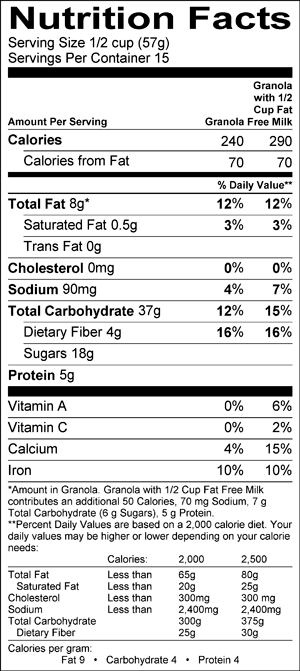What a splendid idea: A Consumer Finance Protection Agency whose sole purpose is to provide a set of standards for the finance industry when it comes to marketing their products to otherwise naive US consumers.
The original plan was to have a standard form for major finance purchases — mortgages, cars, revolving credit. This would allow consumers to 1) Understand the amount of money the financing would cost them; 2) Determine if they could afford this product; 3) Allow them to shop competitively for the best rates.
Good idea, right?  Considering that we people made the Snuggie, the Sham-Ease, and Hair-in-a-Can all best sellers, perhaps a little impulse control is a good idea. More accurate cost disclosures of credit will also help. Americans need help figuring out exactly what all this stuff costs when you include finance charges. We are, after all, a country of math-phobic shopaholic shit junkies. Anything that can help us figure out whether we can afford our bigger purchases — like cars and houses — should be a no-brainer.
Considering that we people made the Snuggie, the Sham-Ease, and Hair-in-a-Can all best sellers, perhaps a little impulse control is a good idea. More accurate cost disclosures of credit will also help. Americans need help figuring out exactly what all this stuff costs when you include finance charges. We are, after all, a country of math-phobic shopaholic shit junkies. Anything that can help us figure out whether we can afford our bigger purchases — like cars and houses — should be a no-brainer.
Unfortunately, the banking lobby, in conjunction with the auto dealers lobby, had other ideas. A simple mandate to have all mortgages shown compared to a plain vanilla 30 year fixed was thwarted. It was to be similar to the FDA nutrition disclosures on the side of your kid’s cereal box. Who, could possibly object to that?
That the banking lobby stopped this simple consumer disclosure in its tracks reveals they want nothing to stand in between themselves and any profit, no matter how ill-gotten. The less informed of a shopper, the better. That even this simple consumer disclosure was thwarted is testament to how corrupt Congress has become. They can’t even get something this modest — and needed — passed.
Think back to the boom times of yesteryear. How many Americans actually understand the mortgages they were applying for? Did they calculate the costs, obligations and risks of their loans? Did they understand the cost and differences between Refis, HELOCs, and piggyback loans? The answer for the vast majority of US citizens is an emphatic NO. If anyone needs better disclosure of financial costs, it is the mathematical illiterates — innumerates — here in the USA.
Over the years, I have had countless conversations with home buyers about their mortgages. From 2003 to 2008, a typical a cocktail party or a BBQ invariably went something like this:
Home-Buyer: We got a great deal on our new mortgage.
Me: Did you do a 30 year fixed or something more exotic?
HB: 30 year fixed — at 4.5% !
BR: Sorry, but that’s not 30 year fixed — rates are 6.5% today. That’s probably a 2/28, with a reset in 200X.
HB: No, we definitely asked for a 30 year fixed.
BR: Well, that’s not what you got — its impossible to get that loan at that rate today.
HB: We’re good negotiators.
BR: Mortgage rates are set by the bond market. Banks charge a mark up ABOVE the rates that they can borrow money. They can’t get 30 year money at 4.5%, so you can’t get 4.5%. There is only so much negotiating you can do with the bond market.
HB: Well, its definitely a 30 year fixed.
BR: Please make the pain stop . . .
And so on.
Huge swaths of people, did not understand what they were buying, what it cost them, what their other options were, whether they could afford it or not.
I am not saying this to exonerate their ignorance — it is inexcusable in my opinion. Adults must take responsibility for their decision making, regardless of how foolish it may have been. That home buyers cannot figure out a basic financing document is beyond my comprehension. However, that is the way it is. We must acknowledge the simple reality, if we wish to avoid this problem in the future. That’s why we need to insure consumers understand what they are purchasing.
Currently, there are several proposals floating around to change the basic concept of a consumer protection agency. For the most part, these proposals are meaningless, watered down foolishness, bordering on idiotic. Let the Fed do it? They were already charged with doing this, and under Greenspan, committed Nonfeasance — they failed to do their duty.
The Fed is the wrong agency for this.
It does not need to be a giant bureaucracy, just a relatively simple set of disclosure laws to make sure consumers understand, in plain English, what they are buying. And the teeth to enforce them.
Americans have a hard time with complex math. And in Finance, we have a carnivorous sales force that eats its young, and sells their grandmothers near worthless CDS at par. Forcing this rapacious group of Ferengi to comply with fair cost disclosure is not asking too much.
If we are going to have an informed consumer class making intelligent financial decisions, a Consumer Protection Agency is a good place to start . . .
>

via Tom Toles


What's been said:
Discussions found on the web: